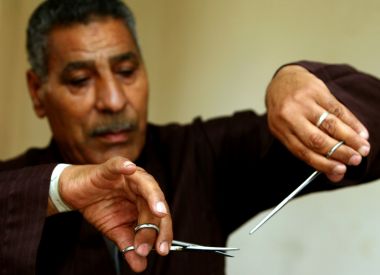Female genital mutilation still a problem in Nigeria despite new law banning it

Activists in Nigeria are pushing for a systemic cultural shift to end the practice of female genital mutilation despite the enactment of a law last month banning the harmful procedure.
Before he stepped down from power last May, Nigerian President Goodluck Jonathan signed into law an act prohibiting the procedure, thus cementing his legacy as a champion for women's rights, The Huffington Post reported on Monday.
Female genital mutilation is the partial or total removal of the external female genitalia for non-medical reasons. Such practice forces girls to keep their virginity intact until marriage, ensuring that they will remain faithful to their husbands, according to traditional beliefs.
Even with the enactment of the new law, activists maintained that this won't end the practice and that a change in culture is needed to make sure women and girls will no longer have to undergo the procedure.
"Global experience tells us that ultimately, it's through changing attitudes, not just laws, that we will end [female genital mutilation]," said Tanya Barron, chief executive of children's charity Plan International.
"It is crucial that we scale up efforts to change traditional cultural views that underpin violence against women," said Stella Mukasa, director of gender, violence and rights at the International Center for Research on Women. "Doing so involves laws and policies, as well as community level engagement and programs that work to empower girls directly."
The enactment of the law marked the first time that the entire Nigerian nation expressed its commitment to ending the mutilation practice as previously only a number of Nigerian states outlawed the practice.
In 2012, the UN banned the practice worldwide. Nigeria contributed about a quarter of circumcised females, according to UNICEF.
According to the World Health Organization,125 million women and girls worldwide have undergone genital mutilation, with Nigeria posting the greatest number of cases.
The risks associated with female genital mutilation include heavy bleeding, developing sepsis, urinary tract infections, cysts and becoming infertile.











